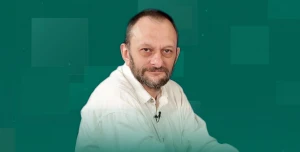
ISW explains why Russia will not be able to completely blockade Ukraine in Black Sea
The increasing presence of the Russian Black Sea Fleet in the Black Sea will not allow Moscow to block Ukraine, in particular, due to fears of military confrontation with NATO countries in the region
This is the opinion of analysts of the Institute for the Study of War (ISW).
The Russian Black Sea Fleet is increasing its military presence in the Black Sea, probably intending to create conditions for the forced stop and search of civilian vessels, as well as to gain more control, experts say.
According to Ukraine's Military Media Center and the UK Ministry of Defense, Russian forces are preparing ships in the Black Sea to "enforce the blockade on Ukraine."
The Military Media Center reported that the Russian Black Sea Fleet is intensifying combat training for its surface forces and naval aviation.
At the same time, the ISW notes that the Russian Black Sea Fleet is highly unlikely to try to completely block Ukraine, despite the increased measures against civilian vessels.
“A full Russian blockade of Ukraine in the Black Sea would mean that Russian forces could fire on all vessels attempting to reach Ukraine,” the report says.
Thus, it is unlikely that Russia will try to enforce such a complete blockade in order not to provoke a military conflict with the littoral countries in the Black Sea region, including NATO members Romania, Bulgaria, and Turkey.
According to ISW experts, Russia's current actions in the Black Sea most likely show that the Kremlin is creating conditions for the search of civilian and commercial vessels, while also advocating a blockade as a means of gaining additional leverage.
In a statement, the British Ministry of Defense said that the Russian corvette Sergei Kotov was patrolling the shipping lane between the Bosphorus and Odesa region, and it could be part of a task force to intercept commercial vessels that Russia believes are headed for Ukraine.
Earlier, on July 20, the Russian Defense Ministry said that its forces would consider all ships heading to Ukraine as "potential carriers of military cargo."
The other day, the Russian opposition newspaper Astra reported that the Russian Federal Security Service (FSB) announced a search of a foreign cargo ship en route from Turkey to Rostov-on-Don and canceled its passage through the Kerch Strait.
FSB officers said that the vessel could have been delivering explosives to Ukraine, as there were 12 Ukrainians on board. Russian security services also said they would search other ships crossing the Kerch Strait.
Russia's termination of the grain deal
On July 16, the last ship loaded with Ukrainian agricultural products under the initiative left the port of Odesa. On 17 July, Russia announced the termination of the grain deal. In response, Volodymyr Zelenskyy said that it was necessary to continue using the grain corridor even despite Russia's withdrawal from the agreement. And Kuleba began urgent consultations at the UN.
The White House condemned Russia's withdrawal from the grain deal, which played a crucial role in reducing global food prices.
On 18 July, Russian presidential spokesman Dmitry Peskov said there were "certain risks" for parties trying to resume the Black Sea Grain Initiative without Russia's participation.
European Commission President Ursula von der Leyen said that it was critical to restore transport links across the Black Sea to provide food to the world's most vulnerable countries and to preserve the ability to export Ukrainian goods.
On 19 July, it was reported that Ukraine was considering transporting food as part of the grain initiative through the territorial waters of Bulgaria and neighbouring Romania.
At the same time, the Russian Ministry of Defence issued a statement threatening ships heading to Ukraine's Black Sea ports. On the same day, Putin named the conditions for Russia's return to the grain deal and demanded their immediate implementation
On July 21, Recep Tayyip Erdogan said he wanted to discuss the extension of the grain deal with his Russian counterpart Vladimir Putin and expressed confidence that it will work again.
On July 22, President of Ukraine Volodymyr Zelenskyy addressed NATO Secretary General Jens Stoltenberg with a proposal to immediately convene the NATO-Ukraine Council due to the security crisis in the Black Sea.
Volodymyr Zelenskyy wrote about his conversation with Stoltenberg on Telegram. It is noted that Zelenskyy and Stoltenberg discussed the implementation of the agreements reached during the Vilnius Summit of the Alliance, as well as further steps towards Ukraine's integration into NATO.
July 25 The Main Intelligence Directorate publishes a report to the Russian leadership, which lists the technologies used by the Russians to prevent the export of Ukrainian grain, indicating a deliberate disruption of the grain deal.
On July 26, the UK Ministry of Defense reports that Russia has deployed a modern corvette, the Sergei Kotov, in the southern Black Sea to intercept merchant ships at sea. It is patrolling the transportation route between the Bosporus and Odesa. The Military Media Center confirmed that Russia is preparing ships and aircraft to blockade areas of the Black Sea.
The US said that Russia has additionally mined approaches to Ukrainian ports and may attack civilian ships.
And NATO said that Allies are stepping up surveillance and reconnaissance in the Black Sea region, including with maritime patrol aircraft and drones.
- News













































